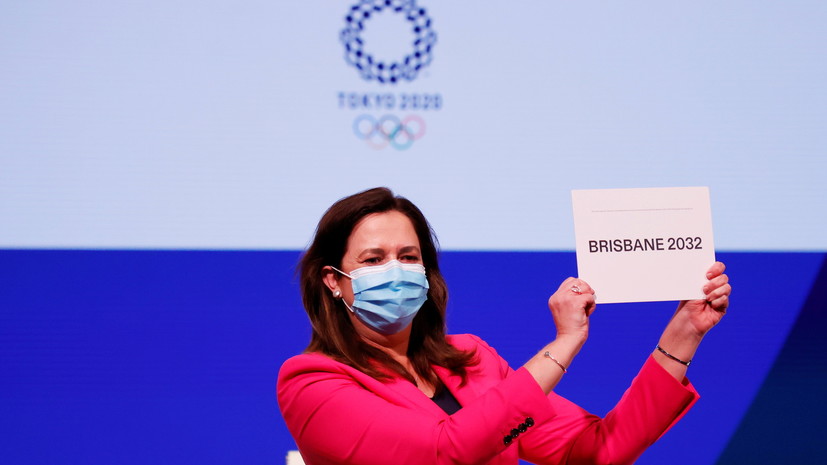Two days before the official opening of the Tokyo Games, the International Olympic Committee decided where the major sporting events will take place in 2032.
The right to host the Games of the XXXV Olympiad was given to the Australian city of Brisbane and the surrounding region of Southeast Queensland.
Immediately after the competition, which will take place from July 23 to August 8, the Summer Paralympic Games will also be held there.
The decision on the venue for the Olympics was made at the 138th session of the IOC in Tokyo.
Brisbane was the only one to vote.
The city's application was supported by 72 voters, five were against, and three more abstained.
IOC President Thomas Bach and Australian representatives John Coates and James Tomkins did not participate in the decision.
The choice of the capital for the next Olympic Games was carried out according to a fundamentally new scheme, different from the one that has been applied over the past decades.
Previously, several cities could apply for the competition, which formed applications and participated in the voting.
It could take several rounds until one of the cities won the support of the majority.
But in 2019, the IOC reformed this process. Commissions were created to select the capitals of the future Summer and Winter Olympic Games. Their tasks include conducting a dialogue with applicants who have shown interest in holding the competition, and selecting one preferred candidate. If approved by the Executive Committee, a vote is taken with the participation of all members of the International Olympic Committee, who finally approve the selection of the Commission.
At the same time, the requirements for candidates were simplified.
If earlier the application was made on behalf of only one city from one country, now candidates can represent entire regions or even individual countries, and not one, but several.
It also canceled the requirement that elections for the future capital must take place seven years before the Games.
All of these changes were proposed by a working group chaired by the head of the Australian Olympic Committee, Coates.
Several Chinese cities, Doha, Indian Ahmedabad, Jakarta, Madrid and the Rhine-Ruhr region in Germany, which included 13 cities, showed interest in hosting the 2032 Games.
However, in February 2021, Brisbane received priority candidate status and the opportunity to vote.
This practically predetermined the success of the Australian bid.
“Brisbane became the first host city of the Olympics to be selected in accordance with a new, more flexible approach to defining the Olympic capital and took full advantage of this advantage. The reforms have allowed the IOC to work with cities, regions and countries, and to encourage Olympic projects that use a large proportion of existing and temporary facilities that meet long-term development plans and have a clear understanding of the role of sport for the local community, ”Bach said after the final victory of Brisbane. ...
Australia will become the fourth country after the US, UK and France to host the Summer Olympics for the third time. Previous Games were held in Melbourne in 1956 and in Sydney in 2000. Brisbane will become the easternmost city on Earth to host Olympic medals. He already fought for the right to host the competition in 1992, but finished only third behind Barcelona and Paris.
The organizers emphasize that the future Olympics will be hosted not only by Brisbane, but by the entire Southeast Queensland, where the cities of Gold Coast, Ipswich, Toowoomba and others are also located. There will be 37 sports facilities throughout the region. Interestingly, the Gabba stadium, which is to become the main arena for the Games, has already once hosted the Olympic competitions - it hosted the football matches of the Sydney Olympics. The Gold Coast also hosted the 2018 Commonwealth Games (the competition of the former British colonies), and many of the facilities from those competitions will be used again in 11 years.

